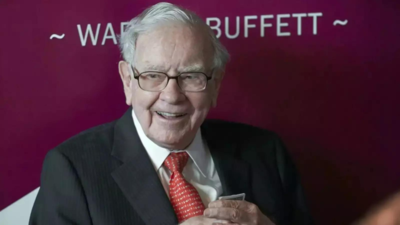Warren Buffett’s Berkshire Hathaway reported a sharp 59% drop in second-quarter profit to $12.37 billion, hit by a $3.76 billion writedown on its investment in Kraft Heinz as the food company reconsiders undoing its 2015 merger.The company earned $8,601 per Class A share in the June quarter, down from $21,122 per share, or $30.25 billion, in the same period a year earlier. The sharp fall was largely driven by significantly lower unrealised gains from its vast stock portfolio, which Buffett has often said should not be used to assess performance, AP reported.Berkshire’s operating profit, a metric Buffett urges shareholders to focus on, fell marginally to $11.16 billion from $11.60 billion a year ago. That figure excludes investment and derivative gains or losses and reflects performance across Berkshire’s insurance units, BNSF railroad, utilities, and dozens of other businesses.Despite the Kraft Heinz setback and macro headwinds like President Donald Trump’s reciprocal tariffs, most of Berkshire’s core businesses showed resilience. The company also beat Wall Street’s operating profit expectations — four analysts polled by FactSet had forecast $7,508.10 per Class A share.Berkshire owns more than 27% of Kraft Heinz and was instrumental in the 2015 deal that combined the two iconic food brands. But the company has since struggled amid changing consumer tastes and growing competition from healthier options and private labels. Buffett himself has acknowledged that he misjudged the sector’s trajectory and overpaid for the investment.Earlier this year, Berkshire’s board representatives exited Kraft Heinz just before the company said it was exploring strategic options — including potentially spinning off some of its brands. The strategic rethink comes as Kraft Heinz continues to feel the heat from a shift away from processed foods and changing retail dynamics.Meanwhile, Berkshire’s cash pile remains massive at $344.1 billion, although it dipped slightly from the $347.7 billion reported at the end of March. At Berkshire’s annual meeting in May, Buffett said valuations remain too high for him to find deals that meet his standards.Buffett also confirmed he would step down as CEO at the end of the year, handing the reins to Vice Chairman Greg Abel while remaining chairman. Shareholders were also disappointed by Berkshire’s decision not to repurchase any shares during the quarter — even though the stock dropped more than 12% after Buffett’s retirement announcement.Another major area of investor interest is Berkshire’s railway unit BNSF, especially after Union Pacific’s proposed acquisition of Norfolk Southern to create the first coast-to-coast railroad in the US. That sparked speculation that BNSF may need to merge with CSX to stay competitive.However, CFRA analyst Cathy Seifert noted that Buffett prefers to pursue value-based deals rather than market-driven ones. “He wants to do it because he found an undervalued franchise — not because the market says you need to do a deal,” she said.Still, BNSF continues to perform well independently, posting a 19% rise in operating profit to $1.47 billion, thanks to cost controls and a modest 1% increase in shipment volumes.








